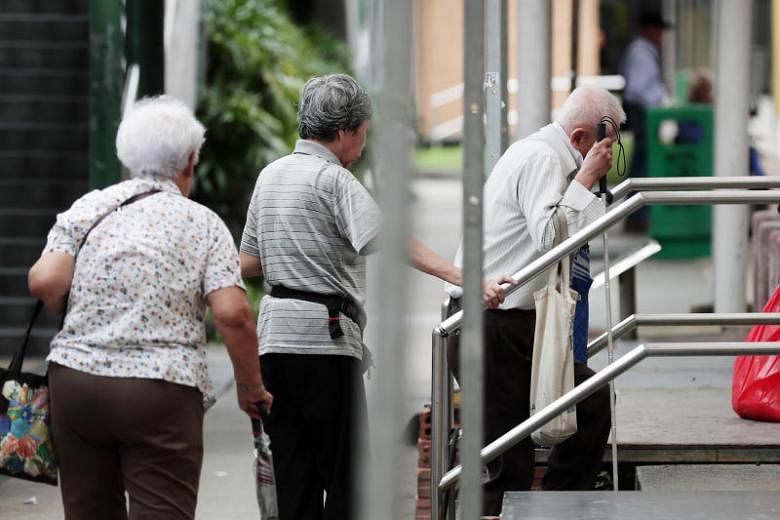SINGAPORE - For the first time, researchers in Singapore gathered people aged 55 and above to talk about what they considered to be their basic standard of living, and calculated that a single man or woman aged 65 and above would need at least $1,379 a month to sustain it.
A couple aged 65 and above would need $2,351.
The researchers, from different institutions, based their calculations only on those items that all participants agreed were necessary to them. They had to justify those items.
They were also allowed to include occasional inexpensive meals out with family or friends, homes that are safe and comfortable, and an annual holiday to a nearby destination at a cost about $500.
Left out of the list were things deemed extravagances, like air-conditioning and a car.
Published on Wednesday (May 22), the household budgets study, What older people need in Singapore, raises a range of policy concerns about whether seniors will have enough to meet their aspirations.
Among other things, it may not be sustainable for coming generations to rely on family support as a source of retirement income, while basic retirement payouts from the Central Provident Fund (CPF) alone may also be inadequate.
The qualitative study, led by Assistant Professor Ng Kok Hoe from the Lee Kuan Yew School of Public Policy and included Associate Professor Teo You Yenn, head of sociology at Nanyang Technological University, involved focus group discussions with 103 participants from diverse backgrounds.
They included people who lived in rental flats as well as private property and a larger representation of some groups, such as minorities and women, to ensure a diversity of views.
The study used the Minimum Income Standard (MIS) research method, which was first developed at Loughborough University, and has been used in countries such as Japan and Ireland.
In defining a basic standard of living, participants went beyond housing, food and clothing, to include opportunities to education, employment, work-life balance and healthcare. It should also enable a sense of belonging, respect, security and independence and include freedom to participate in social activities, and engage in one's cultural and religious practices.
The list, said researchers, reflected the norms and values held by Singaporeans today.
With a detailed agreed-on list, which included items that were not the cheapest but priced "low" or "average", researchers worked out a budget based on price lists at stores like NTUC Fairprice, and consulted experts on the sums needed for expenses such as food and healthcare.
The overall shape of the household budgets was strikingly similar to retired households' actual expenditure patterns, said researchers. But the budgets had larger recreation and culture components, and smaller healthcare components, as the study assumed good health.
The study's authors noted that some of Singapore's older population would not have the means to retire, but would have to supplement their incomes through sources such as transfers from family members and personal savings in order to achieve their desired basic standard.

For instance, while the median monthly work income of full-time workers aged 60 and above was $2,000 in 2017, the median monthly work income of cleaners and labourers in the same age group was $1,200 that year, the study said.
Only 55 per cent of persons turning 55 had enough savings in their Central Provident Fund accounts to fulfil the Basic Retirement Sum in 2013, meaning that around half will not even receive the basic annuity of less than $800 a month, the study added.
Prof Ng said that while the study did not look into how many people relied only on government assistance and handouts from social organisations to meet these needs, Singapore may face constraints if it continues to promote family as a primary source of income for the elderly, as household sizes shrink.
It is key to ensure that other income sources, such as wages, are adequate, he said.


